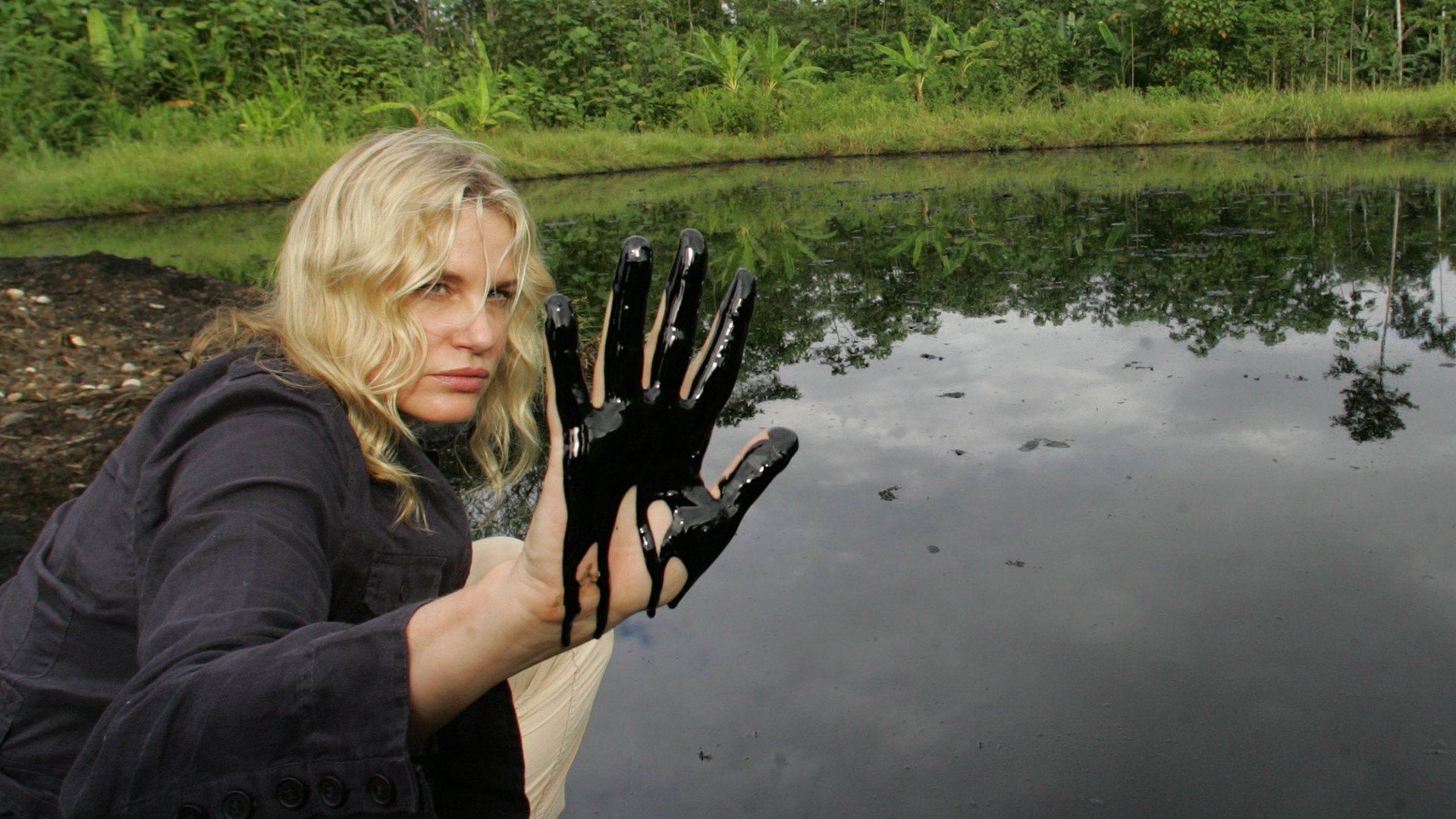One of the nastiest fights in Big Oil just got nastier
This story has been updated with a statement from Patton Boggs.


This story has been updated with a statement from Patton Boggs.
One of the world’s largest, longest and nastiest courtroom battles was escalated today by Chevron, which sued Patton Boggs, the powerhouse law firm, for alleged fraud and malicious prosecution in an Ecuadoran pollution case.
The suit seeks to make the Washington firm—one of the fiercest litigators in a city known for gloves-off gladiators—financially responsible for at least part of Chevron’s tens of millions of dollars in legal costs to fight a $19 billion pollution judgment in Ecuador.
The suit does not name a damage figure, which would be decided by the judge if it is successful. But the fraud component could put Patton Boggs on the hook for triple damages, potentially making the suit worth hundreds of millions of dollars.

In an email after this story was published, Patton Boggs sent this statement:
Chevron’s proposed complaint against Patton Boggs is perhaps the starkest example yet of how Chevron will use its limitless resources to intimidate and harass anyone that dares to help the Ecuadorian Plaintiffs in their 20-year battle for justice. This cynical strategy will not work. We are proud that we have helped the indigenous and farming communities that have been so adversely impacted by Chevron’s actions. Patton Boggs has acted conscientiously, ethically and in good faith at all times since becoming involved in this case in 2010, and will not be intimidated by Chevron’s scare tactics. We will continue to zealously represent our clients and will not stand by idly and allow Chevron to disrupt our work and tarnish our reputation. We will defend ourselves in this case, and we are confident that the world will see through Chevron’s increasingly transparent efforts to divert attention from its liability in Ecuador and from the suffering of the Amazon communities.
The Chevron lawsuit was filed in three documents. Here is the main argument. Then there is this document in support of its claim. And finally this two-page, third filing.
The root of the fracas is a 1993 Ecuadoran lawsuit against Texaco (which Chevron bought in 2001), which plaintiffs claim dangerously polluted the Amazon rain forest. In 2011, the Ecuadorans won the $19 billion judgment. But Chevron claims that the evidence was fabricated and has refused to pay any of the money.
Patton Boggs joined the case against Chevron in 2010. Since its fees are extremely high, it brought along with it a UK-based hedge fund called Burford Capital that specializes in financing white-collar litigation. Burford agreed to finance up to $15 million of Patton Boggs’ legal fees.
Meanwhile Chevron brought in a new law firm—Gibson, Dunn & Crutcher, which has a reputation as every bit the pit bull as Patton Boggs. Since then, the two firms have been like Ali and Fraser, accusing each other of breaches of various kinds in and outside court. In 2011, Chevron filed a racketeering suit against many of the principals, lawyers and consultants in the plaintiffs’ case.
But over the last month, Chevron has managed to peel away important chunks of the Ecuadoran case in exchange for dropping names from its racketeering suit. In April, a Colorado consultant firm that allegedly ghost-wrote the Ecuadoran judge’s decision repudiated its work and apologized in exchange for being dropped as a racketeering defendant. In early May, two US lawyers for the Ecuadorans asked a judge for permission to withdraw.
In addition, Chevron got Christopher Bogart, Burford Capital’s CEO, to pull out of the case. Bogart issued an extraordinary, 26-page repudiation of his own, including an attack against Patton Boggs. The withdrawal is remarkable in two ways—for doing so in such a public manner, but also in that Burford surrendered a 1.5% stake it was to receive of any recovery from Chevron. The stake went to Chevron, hence putting the company in the unusual position of being able to profit from any paid judgment against itself.
But today’s lawsuit significantly raises the stakes. Stripped away of its source of funding, Patton Boggs is now potentially responsible for all of Chevron’s legal fees defending against the firm’s legal actions. Patton Boggs’ task has been to attempt to enforce the Ecuadoran judgment abroad–in Argentina, Brazil and Canada. As part of this, Patton Boggs has thrice gone to federal court against Chevron, including accusing the company of tortious interference.